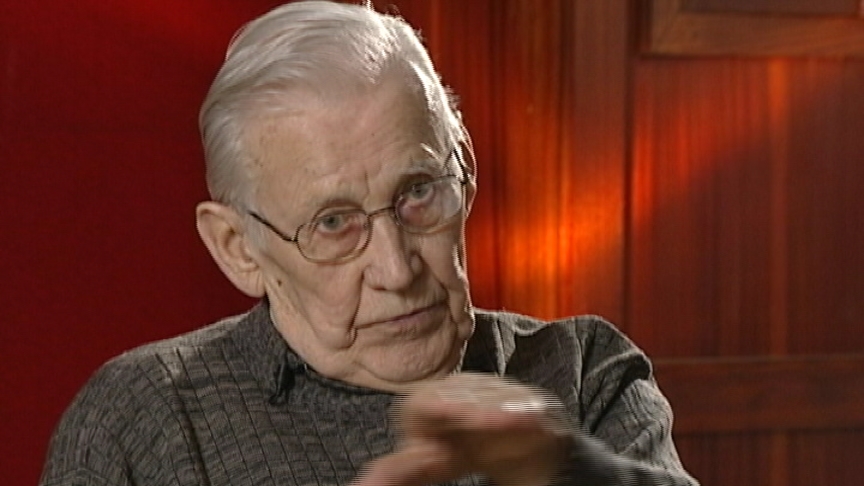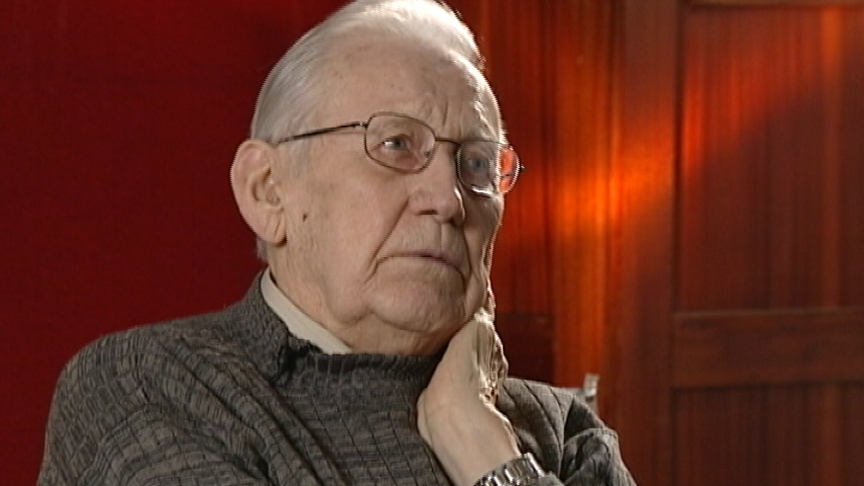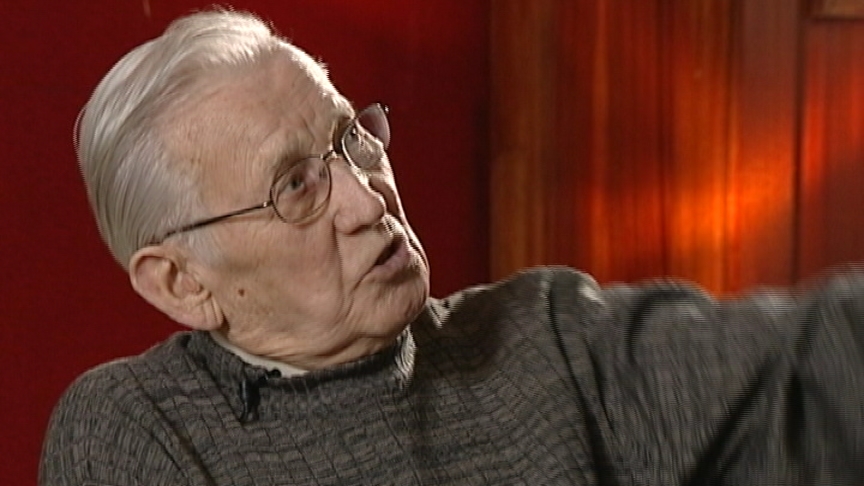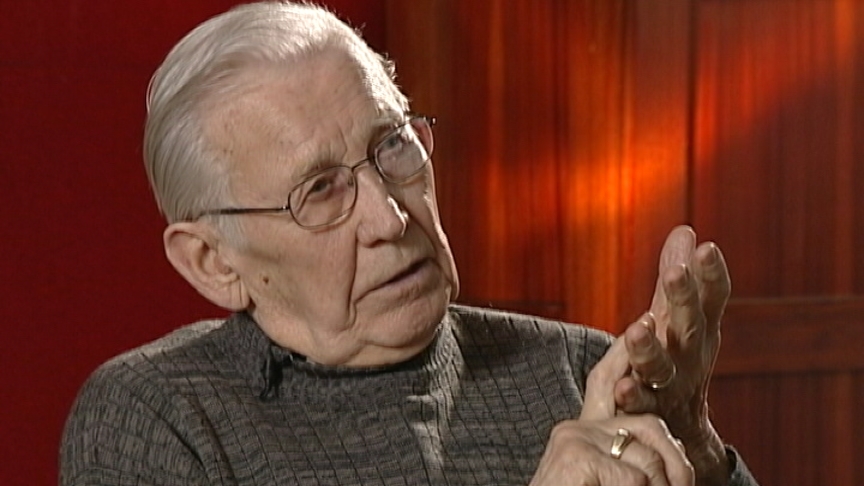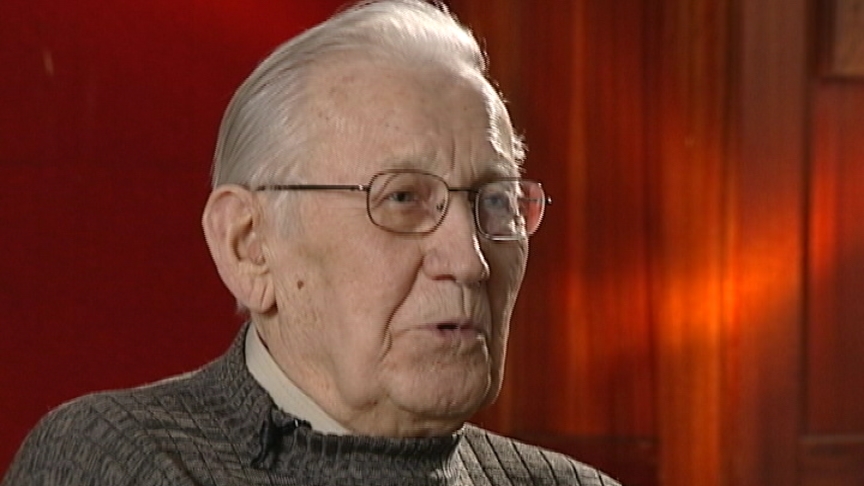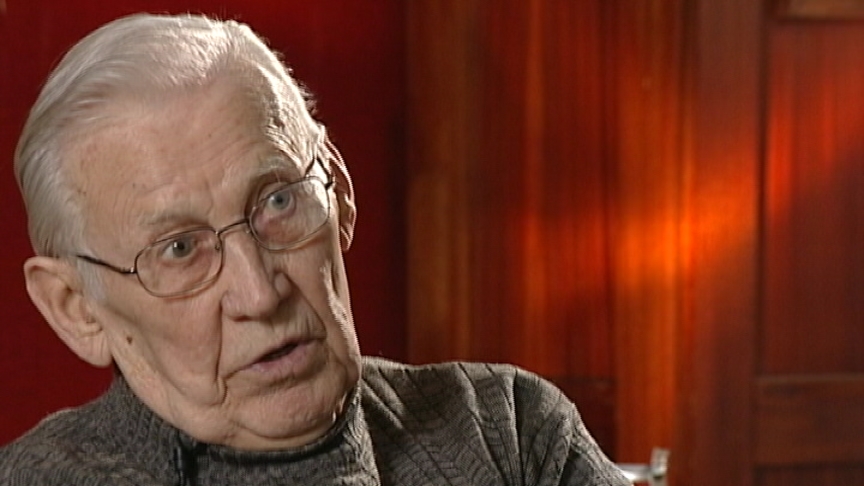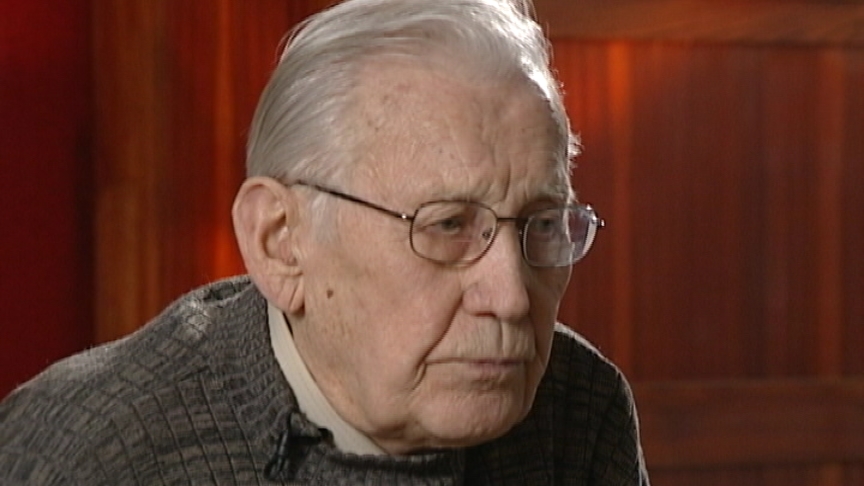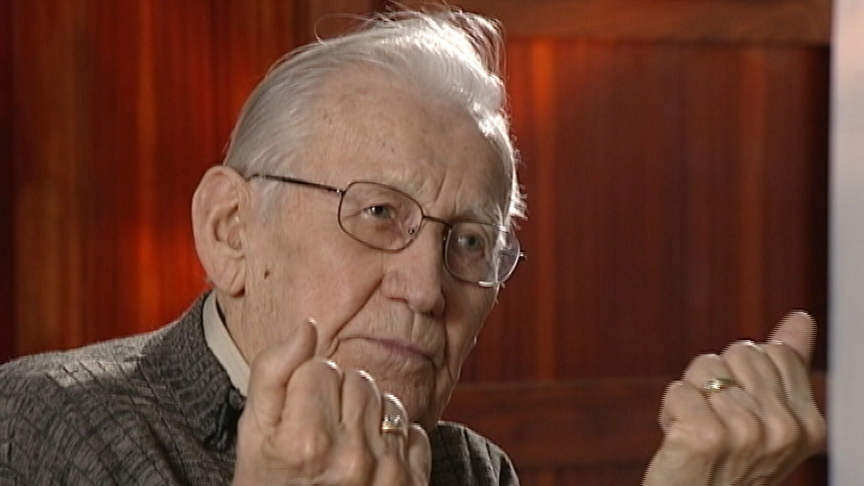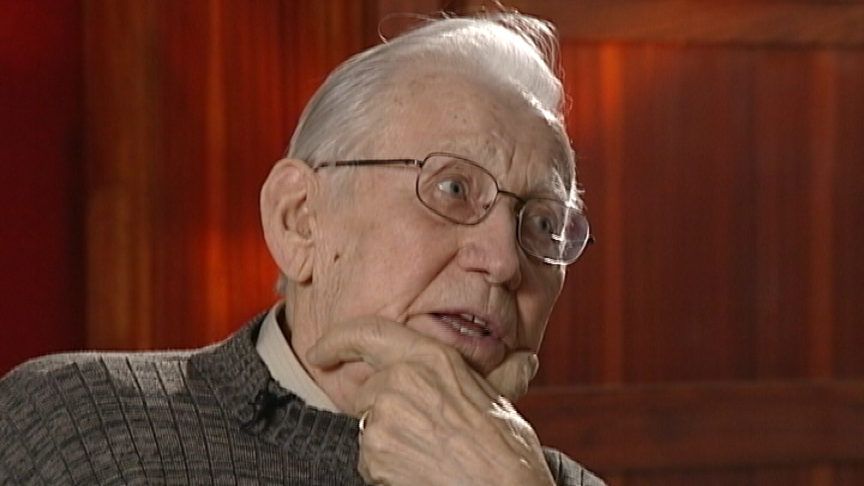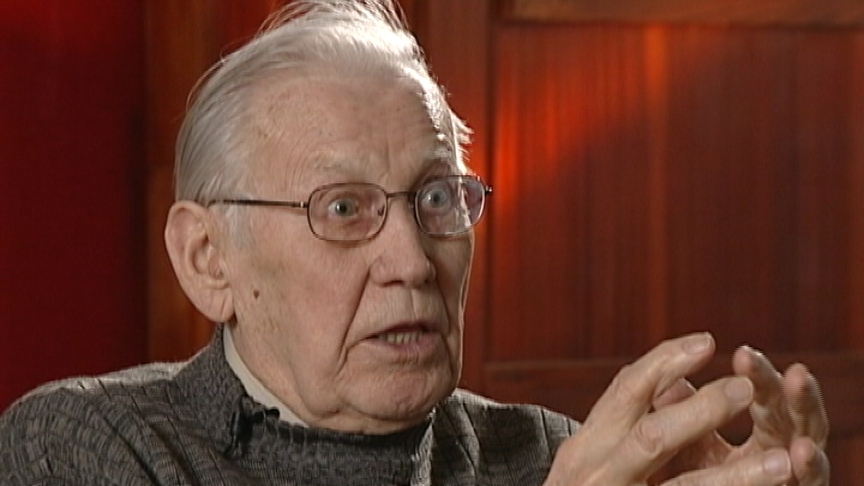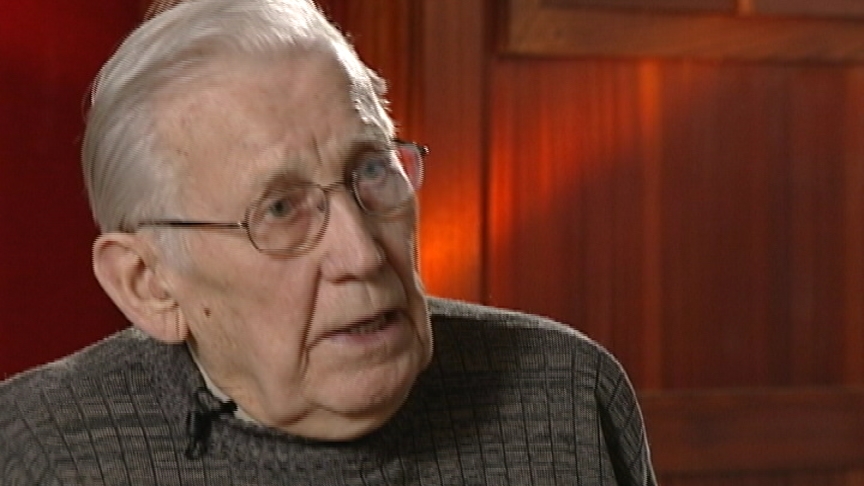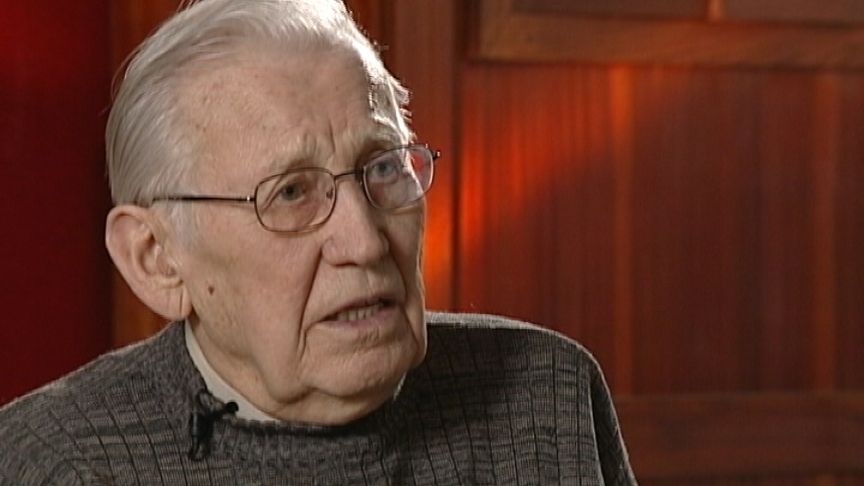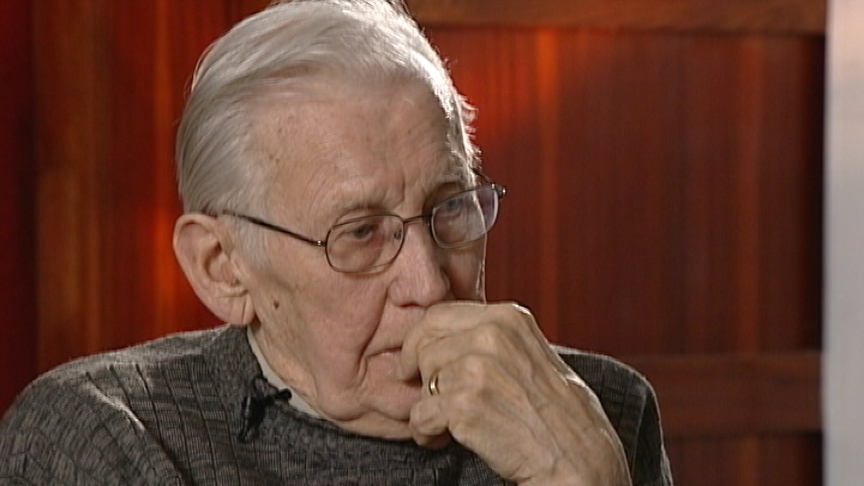Well I went, from this family in Rotterdam... the, the
underground ordered me back to, to Oostvoorne, where the, where I
stayed the first seven months. And I went back there, and then
from there we, we got car, but there was no, no gasoline. So
Frans said, if I've got, I can get enough gasoline, I can get a
gallon of gasoline to take us to Rotterdam, but once we get to
Rotterdam , maybe we can run into the Canadian Army and you could
intercede for me, and we could get some gasoline. And I
said, "Well, let's try it." So, we got in the car and it, it was
the most wonderful ride I’ve ever... I've never, never been
on... it's about 20 miles from Oostvoorne to Rotterdam and the
people stood along the way with garlands and, and, and roses and
flowers and, and the bridge that I had crossed before, that I had
difficulty crossing before, I came to and there was a, a fellow
with an orange band on his shoulder, and he said, "Stop!
What is your business?" And we stopped the car, and Frans
flashed his thing and he said, "This is an RCAF officer,
we're going to The Hague on official business." The guy just
bolted straight up and he saluted, you know, and he
said, "Go through!" We went through, and we got to Rotterdam
and there were no cars at all, no, no cars whatsoever. But the
people were just . . . there were thousands and thousands of
people they were on the street. And we were running out of
gas, there was just no gas left. And so I said,
"Well, turn this corner." We went around the corner and there
was the Canadian Army, you know, there were, there were the
Canadian flags and <inaudible>. And I went in and I had . . .
They were from the intelligence corps. I went inside and I
said... and, and he looked up and he, he, of course, he didn't
know, I was in civilian clothes, and he said, "Well, what do you
want?" And then, then I spoke to him and then, of course, he knew
I was Canadian right away. And I told him my story and there was
a, a Toronto Star reporter there and he said, "I'll let your
family know that . . ." he says, "I wish I could get your
story but I, I haven't got time. I've got another assignment." So
after they'd finished, I'd told them this, my story, he said, "My
God," he said, "that's, thats, that's amazing. What can I do for
ya?" he said. And I said, "Gasoline! We need
gasoline. We can't, we can't go any..." He said, "Don't
worry." He says, "What's your name and your rank?" He put my
name and my rank and he says, "This is so and so. He can
go to any petrol dump in Holland and you, you're to supply him
with all the gasoline that he needs for his car. He's
travelling with his, his Dutch friends who've harboured him for
a year. They deserve, they deserve the best." And so I, I
took this thing, and then they filled the car with gasoline and
they, they got these jerry tanks and they put them in the trunk,
they said... so we could go back, that was for everyday. So,
for the next ten days I was in Holland, watching the liberation.
And it was just unbelievable, you know. The people, after five
years, after five years, they just let go and they were
unbelievably happy, they were hysterical. And not only that,
but they were out also to punish those who had collaborated, and
they took, they took the, the, some of the girls... I
remember the, the girls leaning out of the, out of the windows,
and they would take the girls, they'd throw them up in a
blanket. But first they'd shave their heads off. Then they'd sort
them, those girls that collaborated with, with the
German soldiers. They'd throw them up in the air, and in a
blanket, and, and shave all their hair off, and then let them out
And they'd, the, the, these girls would go up, put kerchiefs on
their heads, lean out the window and watch the others being
humiliated. So, it was... but after ten days, a Dakota came
and picked us, picked me up and brought me back to England.



